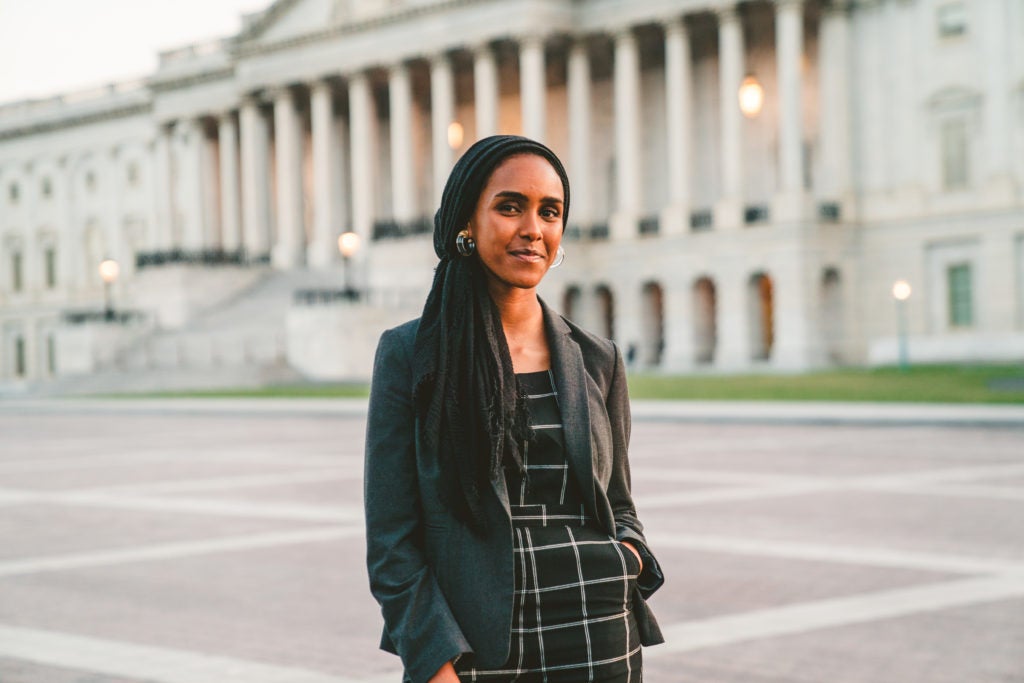The Washington, DC Classroom
Georgetown University College of Arts & Sciences provides students with proximity and access to the rich opportunities of the nation’s capital, one of the world’s most important and dynamic cities. More than the global center of political power, Washington, DC, is also a vibrant and diverse city. Beyond the monuments and museums, DC is a city where students can extend their learning in practical and professional environments.

Kawther Berhanu (C’19, SFS’22, Rangel Fellow)
Washington, DC Resources
Beyond internships, students can travel easily into Washington, DC, to find resources to support their education. Georgetown’s proximity to the Library of Congress, the Folger Shakespeare Library, the National Institutes of Health, and the Smithsonian provides professors and students with access to world-class research facilities.
The College is committed to connecting our students to opportunities typically unavailable to undergraduates. The Department of English offers students the opportunity to study at the Folger Shakespeare Library with Folger research associates. In the Shaping National Science Policy seminar through the Science in the Public Interest Program, students develop solutions to domestic issues and lobby Congress to effect change.
Community-Based Learning
Georgetown’s Center for Social Justice Research, Teaching, and Service (CSJ) heads the university’s collaboration with communities in the greater Washington, DC area. The CSJ coordinates volunteer projects, community-based courses, and research efforts geared toward helping the DC community.
The College offers several community-based learning (CBL) courses in conjunction with the CSJ. Students typically work with nonprofit organizations in the Washington, DC area. Recent CBL courses include Social Entrepreneurship: Leading Social Change; Introduction to Justice and Peace; Foundations in Education; DC: Neighborhoods, Poverty, and Inequality; and Social Justice Documentary.
Through the CSJ, students may also add a 4th-credit option for social action. Students apply their work with disadvantaged or underrepresented individuals to a course, with approval from the CSJ and their professor.